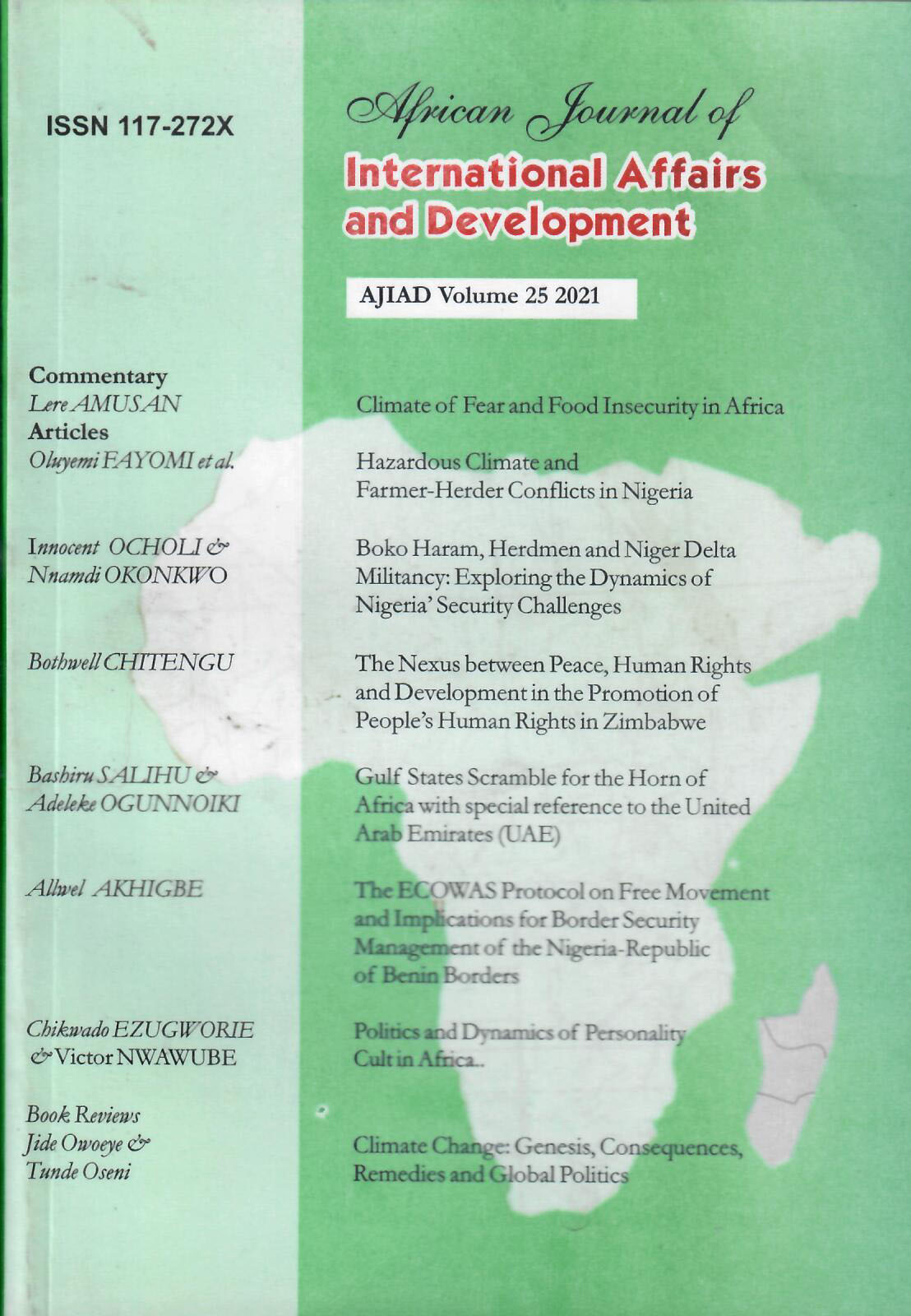Climate of Fear and Food Insecurity in Africa
Keywords:
Climate of Fear and Food InsecurityAbstract
The end of the Cold War was thought to be an end of history. End of
history, not only in the form of liberal international system as
postulated by Francis Fukuyama, but also an end of history from
holistic perspective where sustainable development would be the order
of the day. What perestroika and glasnost brought to Africa amount to
misery, poverty, maldevelopment and a lacuna in the area of economic
opportunities. To most states in the continent, clouds of war, conflicts,
banditry, kidnapping and politics of zero-sum-game pervade the
atmosphere. The end result of this comes directly to the down-trodden
people who are the majority and stay in the countryside. A few states
did not taste the bitter pills of instability, but this does not mean that
they enjoy food security. The imposed neoliberal international
economic relations subjected Africa to the level of “beggar-thy-west”
policy where humanitarian aid continue to feed the continent. This
was in the form of producing what Africans hardly consume, but
consume what they do not produce. Instability that these attributes
generate are lingering in the continent in the form of climate of fear.
This commentary focuses on the impact of instability on food security
and how the continent is coping with the same. Relying on secondary
sources of data and embedded liberal theory, with some flavours of
social constructivism, the paper concludes that electoral system that
are indigenous to the continent’s environment will promote sustainable
food security and by extension, food sovereignty

